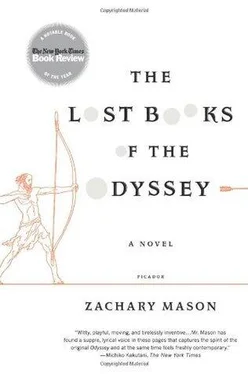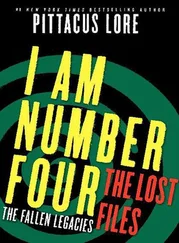Unlike the ancient, mellow and caste-bound Indian culture in which chatarang originated, the Achaeans were, as a society, desperately concerned with the preeminence of the individual. This difference is reflected in their chess — in the original chatarang, the pieces represent types, interchangeable atoms of abstract ordnance, while in the Achaean game they are individual warriors with names, histories and idiosyncracies.
The Achaean chess primer was the record of a single long game that was believed to embody all that could usefully be said on the subject of chess. On Chios, journeymen who sought their chess master’s robes were required to recite the primer in its entirety before a panel of judges who would neither miss nor forgive the slightest error. In its earliest phase, the primer was a raw transcript of move, counter-move and counter’s counter, with little or no analysis or exposition. Occasionally, fragments of other classic games were given as a kind of aside, presumably to illustrate some principle of play, though to modern readers their significance can be obscure.
The purity of the primer eroded over time — formulaic descriptions were added as aides-mémoire (pieces were called swift-moving, versatile, valuable in the middle game, and so forth), and, most likely, to give the reciter a respite while he gathered his thoughts. Over the centuries, tactical commentary crept into what had once been a purely descriptive account.
By the eighth century B.C. the instructional character of the primer had largely atrophied and the recitation of the by then baroquely ornamented text had become an end in itself. From this time on, the manual, known as the Iliad , assumed an essentially literary character, although its original nature was still sometimes discernible in, say, its fixation on the exchange of casualties — Alpha slew Beta with this spear and Gamma slew Alpha with that stone and so on, a meaningless list of deaths unless one knows how to read it as a nuanced sequence of middle-game exchanges. Similarly, the Catalog of Ships *can be usefully read as a treatise on positional play in the opening.
Although the book became more complex over time, the pieces retained a characteristic geometric simplicity. Achilles is represented as a tall, spare warrior holding a shield and a spear, and carved, by preference, from white coral. Nestor is a stooped warrior with two parallel lines incised in the forehead of an otherwise featureless oval face. The stylistic exception is Odysseus, who is always depicted with a detailed, naturalistic countenance that suggests more self-awareness and humanity than the smooth, geometrically regular faces of his peers.
There is a second and most likely apocryphal manual of Achaean chess, the record of a long and bitter endgame played out on a board nearly stripped of pieces. It is even more difficult to associate this book with the practice of chess than the Iliad , probably due to the corruption of the text and many late interpolations. It has been speculated that the Odyssey is a sort of fantastic parody of a chess book, a treatise on tactics to be used after the game has ended and the board been abandoned by the players, the pieces left finally to their own devices and to entropy. One of the few surviving pieces is Odysseus, inching across the crumbling board toward his home square.
*Though written in credible Homeric Greek, the contents of this chapter cannot be dated much before the early Middle Ages. We can assume it is a late addition to the papyrus; in any event, it is the least intact of the papyrus’s texts — water damage has made many words and in some cases whole paragraphs matters of inference and conjecture.
*The Catalog of Ships is a section of the second book of the Iliad which consists almost entirely of a list of which cities sent how many ships to Troy.
The instant the prow of his ship touched the shore, Achilles drew back his arm and cast his spear at the high walls of Troy,” recited Alexander as his ship ground on the sand and he cast his own spear in the same trajectory toward Troy’s crumbling ruins. *His Macedonians jumped down into the breakers, delighted to finally bring war to the empire on whose motions they and their fathers had for so long kept a weather eye. †That evening, Alexander and Hephaestion ‡raced around the tumulus of Achilles’ tomb, after which an augur crowned them with laurels and declared that they were Achilles and Patroclus reborn.

Dawn came to the long valley of Gaugamela. A warm band of light burgeoned on the western mountains and spread east, first illuminating an empty expanse of cracked mud and dry grass, then the tents of the Macedonian army, and blinding, for a few moments, the eyes of its sentries. The light poured across no man’s land and then over the sprawling Persian host, gleaming red on their helmets, spearpoints, mail and buckles as though on the molten surface of a restless sea. They had been standing in battle array since sunset, their sleepless emperor determined not to be taken unawares. His multitudes blinked uneasily as the sun rose behind them.
By this time most of the Macedonian soldiers had been astir for hours despite the order that everyone get a full night’s sleep. They lingered in their tents, lying on their beds with their eyes fixed on nothing, talking quietly with their tent-mates of distant farms, old summers, and what the day might bring.
The pacing silhouettes of officers passed unnoticed on the wall of Alexander’s tent. Sergeants shouted, distant horses whinnied and men called for swords but Alexander was still asleep, his arm thrown over his face to block out the sun. Increasingly anxious aides circulated around his door. Eventually, his abashed valet, firmly directed by Ptolemy, *went in and gently shook him. Alexander woke at once, apologized to the valet for oversleeping and sprang out of bed to wash his face in cold water. The morning mist had burned off and the day was bright and clear. Alexander put on his white plumed helmet (the better for friend and enemy to find him on the battle-field) and rode out to stand in front of his troops as they formed their line, trumpets sounded and the Persians came thundering to meet them.

After crossing the Ganges, Alexander proclaimed his intention to subjugate India and if there was anything beyond to bend that to his will also and so on to the end of the world. His soldiers, however, had had enough of loot in the sack of Persepolis, enough of hard living in the frozen passes of the Hindu Kush and enough of glory when they dethroned the Emperor Darius. They missed their wives and farms and did not want to die in a strange land where their sons would never tend their graves, and they said that they would go no farther.
Alexander ordered them forward in the peremptory bark they were used to obeying. Then he cajoled them, praised their loyalty and valor, went from man to man and knew each one’s name and deeds and wounds, whose life he had saved and who had saved his. Only a little farther, he promised, and then a talent of gold for each of them and all the world would know forevermore what it meant to be a Macedonian. Next he cursed them, called them spiritless curs who were sated with glory after expelling a few hill barons from their mud fortresses — without him they would have been no more than a rabble of cattle thieves. Finally, he said that if all his men were traitors, he would go on alone and at least die with honor, a term with which they were probably unacquainted. He turned his back on them and retired to his tent where he refused both food and entreaty. After three days the men sent emissaries pleading their love, begging him to eat something and keep his strength up so that he, their king, could lead them on the long trip home, and Alexander was at last moved by his veterans’ tears.
Читать дальше













